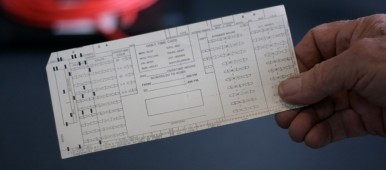
- Mediation
- Arbitration
- Court Neutrals
- Online Dispute Resolution
- Technology
- Court Decisions
- More
- Legislation
- Healthcare
- Guest Posts
- John DeGroote
- John C. Fleming
- Rick Freeman
- Professor Peter Friedman
- Honorable W. Royal Furgeson, Jr.
- James M. Gaitis
- Laura A. Kaster
- Professor John Lande
- Philip J. Loree, Jr.
- Michael McIlwrath
- F. Peter Phillips
- Professor Alan Scott Rau
- Professor Thomas J. Stipanowich
- Professor S.I. Strong
- Richard Webb
- Glen M. Wilkerson
- International arbitration
- Regulation
- Sports and Entertainment
- We’re Back!!!!Well, it’s been a while since we published and that is about to change. Since I spent much of last year becoming
 JAMS Welcomes Karl Bayer to its Panel of NeutralsJAMS, the world’s largest private alternative dispute resolution (ADR) provider, is pleased to announce that Karl Bayer
JAMS Welcomes Karl Bayer to its Panel of NeutralsJAMS, the world’s largest private alternative dispute resolution (ADR) provider, is pleased to announce that Karl Bayer Class Action Waivers in Arbitration Agreements: The Twenty-First Century Arbitration Battleground and Implications for the EU CountriesLinda S. Mullenix, Morris & Rita Atlas Chair in Advocacy at the University of Texas School of Law, has written “Class Ac
Class Action Waivers in Arbitration Agreements: The Twenty-First Century Arbitration Battleground and Implications for the EU CountriesLinda S. Mullenix, Morris & Rita Atlas Chair in Advocacy at the University of Texas School of Law, has written “Class Ac Picking the Proper Technological Tool for Problem-Solving in ArbitrationProfessor Amy J. Schmitz, John Deaver Drinko-Baker & Hostetler Chair in Law and Co-Director of the Translational Data An
Picking the Proper Technological Tool for Problem-Solving in ArbitrationProfessor Amy J. Schmitz, John Deaver Drinko-Baker & Hostetler Chair in Law and Co-Director of the Translational Data An
Recent Posts
SCOTX Grants Petition for Review of Individual Arbitration Order in Payday Lender Case
The Supreme Court of Texas has granted a group of payday loan customers’ request to review a putative class action case after the Fourth Court of Appeals in San Antonio ordered the customers to individually arbitrate their claims.
Continue reading...Third Circuit Rules Arbitrability is a Gateway Issue
The United States Court of Appeals for the Third Circuit has issued a decision stating a federal judge committed error when he ruled on a party’s motion to dismiss a case before he considered whether the dispute should be arbitrated.
Continue reading...Living the Dream of ADR: Reflections on Four Decades of the Quiet Revolution in Dispute Resolution
Thomas Stipanowich, Academic Director for the Straus Institute for Dispute Resolution, William H. Webster Chair in Dispute Resolution, and Professor of Law at Pepperdine University School of Law, has published “Living the Dream of ADR: Reflections on Four Decades of the Quiet Revolution in Dispute Resolution,” (Symposium Keynote), Cardozo Journal of Conflict Resolution, Vol. 18, p. 513, 2017; Pepperdine University Legal Studies Research Paper No. 2017/5.
Continue reading...DOJ Flips on Class Waivers Issue
On Friday, the United States Department of Justice (“DOJ”) made an abrupt about-face on the issue of whether a class waiver included in an employer’s arbitration agreement violates the National Labor Relations Act (“NLRA”).
Continue reading...Arbitration
On Tuesday, the Supreme Court of the United States denied a petition for certiorari that was filed by a group of former Ponzi scheme financial advisers.
Continue reading...Mediation
Platts reports that the U.S. Mine Safety and Health Administration (MSHA) just launched a pilot mediation program. Here are the details: Washington (Platts)–20Aug2010/540 pm EDT/2140 GMT US mine safety regulators plan to revert to a speedier mediation process during a 90-day test period starting later this month in an effort to reduce the number of citations appealed by operators. The Mine Safety and Health Administration said Friday it plans to alter “safety and health conferences” so that mine operators can informally dispute citations before filing a formal appeal with the agency’s administrative review board. The pilot program will be tested starting August 31 at a pair of eastern coal mine district offices and one metal/non-metal office. The agency is considering reinstituting a conferencing system that was eliminated in 2007 partly in response to criticism that too many citations were being thrown out in a manner too friendly to the industry. A possible return and revision of the conferencing system represents a rare area of agreement between the Obama administration and the mining industry, which praised the plan. “We were pleased to hear that MSHA is considering revising its current safety conference procedure,” Tony Bumbico, vice president of safety for Arch Coal, said through a spokeswoman. “If approached objectively by all parties, the new conference guidelines have the potential to resolve legitimate disputes early in the process which would be to everyone’s benefit.” The National Mining Association, which has been pushing for a return to the old conferencing system, also lauded the plan. MSHA is seeking ways to reduce a backlog of 89,000 cases before the Federal Mine Safety and Health Review Commission, which a subject of congressional scrutiny both before and after April’s deadly Upper Big Branch blast. The death of 29 workers in the accident only added to the scrutiny. According to FMSHRC data, the number of cases filed during the 12 months ending October 1, 2008 more than doubled from the previous year to 8,900. The commission is on pace to set another record this year, with more than 9,100 cases filed through August 14, compared with 9,200 for the entire fiscal 2009. “It is clear that the current conferencing structure is not working,” MSHA Administrator Joe Main said in a statement. “By resolving factual disputes before a violation is contested, these citations will not be added to the enormous backlog of cases that have bogged down the judicial system.” The United Mine Workers of America and other safety advocates were leery of the program and its potential for departing from a multi-step process put in place last year. “If it’s exactly the same way as it was before — and that’s not clear — then that represents a step backward,” said union spokesman Phil Smith. “We don’t see it as making any progress, because the way it was before…gave the operators too many bites of the apple.” The new pilot program will allow both mine operators and miner representatives to participate in the conferences. Main said he hoped the program will make the agency’s enforcement more efficient. The program will start at three district offices: Coal District 2 in Mt. Pleasant, Pennsylvania; Coal District 6 in Pikeville, Kentucky, and the Metal/Nonmetal Southeast District in Birmingham, Alabama. –Peter Gartrell, peter_gartrell@platts.com
Continue reading...Healthcare Disputes
Legal Research
About Disputing
Disputing is published by Karl Bayer, a dispute resolution expert based in Austin, Texas. Articles published on Disputing aim to provide original insight and commentary around issues related to arbitration, mediation and the alternative dispute resolution industry.
To learn more about Karl and his team, or to schedule a mediation or arbitration with Karl’s live scheduling calendar, visit www.karlbayer.com.













